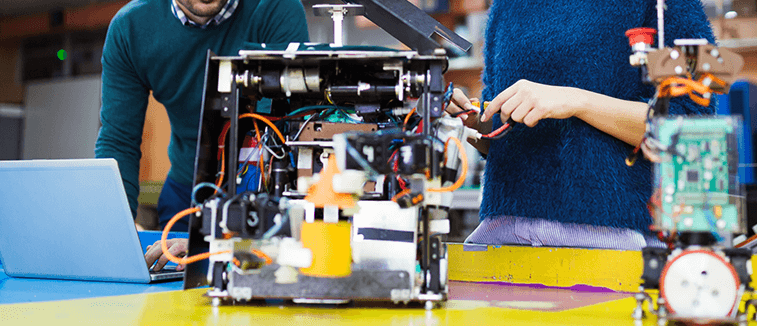Computer Technician
Troubleshoot and resolve hardware and software related problems on computers.
Job opportunities
-
Jobs in Jobstreet right nowJob growth
-
In the last yearSalary
-
Typical monthly salaryJob opportunities
-
Jobs in Jobstreet right nowSalary
-
Typical monthly salaryJob growth
-
In the last yearOn this page
- What's it like to be a Computer Technician?
- How to become a Computer Technician
- Latest Computer Technician jobs
- Top skills and experience for Computer Technicians
What's it like to be a Computer Technician?
Computer Technicians maintain and troubleshoot the technology infrastructure within a variety of industries. They typically repair and maintain servers, computers, and other hardware devices, as well as managing software installations and updates. They also provide technical support, assisting users in resolving issues with software or hardware. Many Computer Technicians offer their services to businesses and individuals and can be found in corporate IT departments, educational institutions, government agencies or are self-employed.

Tasks and duties
- Installing and configuring hardware and software components to ensure usability.
- Troubleshooting hardware and software issues.
- Repairing or replacing damaged hardware.
- Upgrading an entire system to enable compatible software on all computers.
- Performing tests and evaluations on new software and hardware.
- Providing support to users and being the first point of contact for error reporting.
- Establishing good relationships with all departments and colleagues.
How to become a Computer Technician
To become a Computer Technician, start with expertise in Information Technology or Computer Science, then transition into roles focused on hardware and software troubleshooting.
- 1.Obtain a bachelor’s degree in Information Technology, Computer Science, or a related field.
- 2.Gain hands-on experience through internships or entry-level positions in IT support or computer maintenance roles.
- 3.Develop proficiency in troubleshooting hardware and software issues, as well as basic networking concepts.
- 4.Consider obtaining industry certifications such as CompTIA A+ or Microsoft Certified Desktop Support Technician (MCDST) to enhance your credentials.
- 5.Stay updated with the latest advancements in technology and continue learning through workshops, online courses, or professional development opportunities.
Compare your salary
Find out how your salary compares with the average salary for Computer Technicians.Latest Computer Technician jobs on Jobstreet
Be one of the first to discover these recently listed jobs, or browse all Computer Technician jobs on Jobstreet right now.Did you find this helpful?
Skills and experience employers are looking for
Having the right skills and experience can make you an in-demand applicant. Computer Technician employers on Jobstreet are looking for job seekers with expertise in the following areas. Customer Loyalty
Retail Operations
Retail Sales
Knowledge Sharing
Stock Take
Product Knowledge
Inventory Management
Neat Personal Presentation
Professional Housekeeping
Customer Service
Relationship Management
Computer Repair
Computer Systems
Hardware
Installation
Interpersonal Sensitivity
Quality Workmanship
IT Technical Support
Network Troubleshooting
Information Technology Hardware
Source: Jobstreet job ads and Jobstreet Profile data
Did you find this helpful?